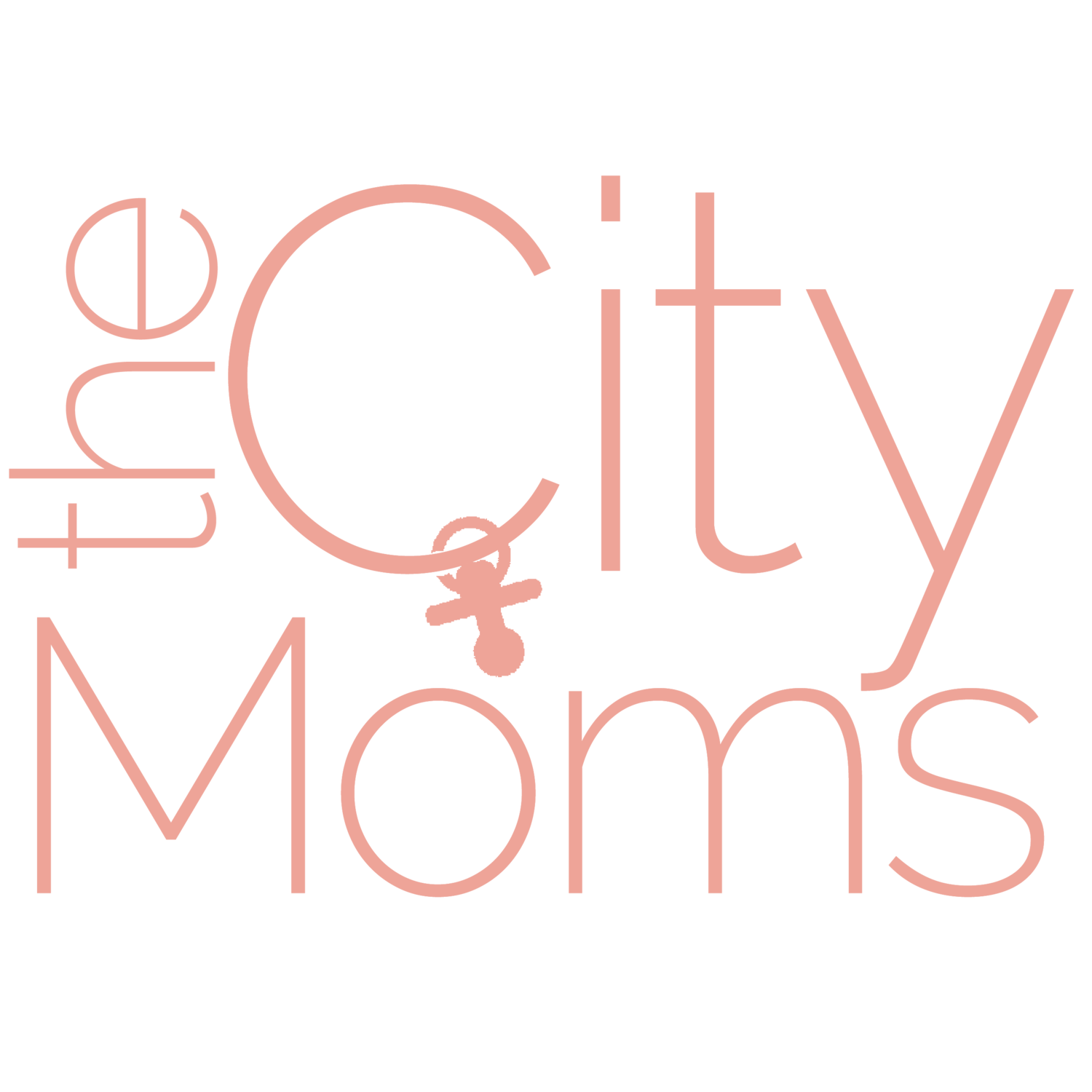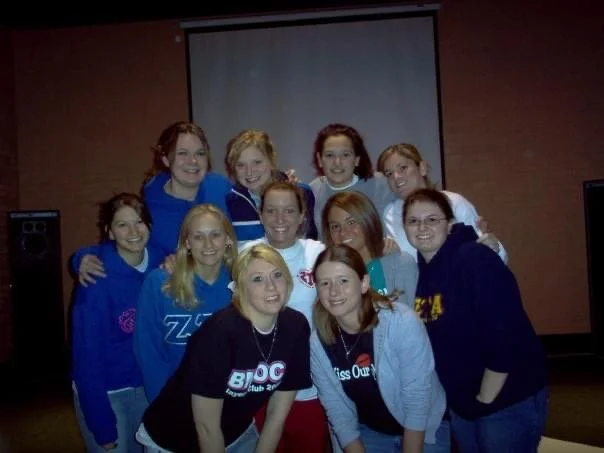Guide for parents: Greek life
Being a parent means constantly watching your child grow, evolve, and make choices that shape their future.
One such decision that might come up is the option to join a Greek organization. As a parent, it's natural to have questions and concerns about what this means for your child and their future. Let’s explore the world of fraternities and sororities together so that you have the knowledge and confidence to support your child as they make this decision.
Throwback to CityMom Lauren’s sorority days
What is “Greek life?”
The Greek system is a predominant part of American colleges, with over 650 universities in the US and Canada offering social and multicultural sororities and fraternities. It’s also seeped into popular culture thanks to movies like “Legally Blonde” and even the TikTok phenomenon, “RushTok.”
As a parent, you may have your own first-hand experience with Greek Life. Or, it might be a bit of a mystery. No matter your experience, recent headlines, and controversies may even have you concerned. Here are a few topics of conversation to help you consult your college student as they explore Greek Life.
Determine the “why”
What is driving your student’s interest in Greek Life? Belonging, social experiences, leadership opportunities, a place to live, and a foundation of friendships and opportunities for the future can be benefits of joining a sorority or fraternity. Many chapters also have a philanthropic mission helping a student feel a part of something bigger than themselves.
As your child determines their reasoning, they should be encouraged to critique the sororities or fraternities of their interest through the same lens. It is not just that they are a good fit for Greek Life, but that Greek Life is a good fit for them and what they want out of the college experience.
Questions you can ask to get the conversation moving:
What are your goals for college academically, socially, and through campus involvement?
How will joining this organization benefit you?
What is the purpose of this Greek Life organization?
Throwback to CityMom Kira’s sorority days
Be honest about the history
Sororities and Fraternities are, by nature, exclusive. A student must receive an invitation to join. Traditionally, these invitations were based on “likeness.” For example, some chapters were originally founded with a focus on music, some on a particular religion, etc.
Many chapters have shed extreme boundaries for membership, embracing diverse and well-rounded college students. However, nationally Greek Life still has a long way to go in including students identifying as people of color or minorities. A mega-name campus in Greek Life, Alabama, only just desegregated sororities ten years ago, finally permitting black women to join historically white sororities in 2013.
Also troubling are the persistent stereotypes of high socioeconomic status and superficial nature found within Greek Life. Think again of “Legally Blonde" and also of “RushTok’s” OOTD’s (Outfit of the Day) where potential new sorority members share the luxury brand details of their outfits.
College should be a time for broadening a young person's experiences and mind. Gaining a perspective of so many ways of being, thinking, and living is often the goal of many universities, students, and parents alike.
Discuss this with your child. Ask them to think about how they hope to pursue authentic friendships and about “fitting in” while encouraging them to remember that college is a great time to explore and befriend so many kinds of people, including themselves.
Things to discuss:
How does the chapter work to include many types of students?
What are the members involved in outside of the Greek Life organization?
What does this chapter do for the community?
Does this organization work to enforce an “elite” class system? How do you feel about that?
What is your personal style? What makes you unique?
What is important to you in a friend?
Throwback to CityMom Angela’s sorority days
Awareness of the Risks
Greek Life is often great for a child who is social, academic, and a leader; but, there are also plenty of organizations on a college campus that offer these opportunities, too. It is important that your child feels safe and comfortable in whatever they choose.
Nationally and historically, a young person's college years are marked with higher rates of risky behavior, including sexual assault, binge drinking, and drug use. Rates are particularly high within Greek Organizations with 97% of fraternity men reporting alcohol use in this 10-year study.
Talk with your child about their values, consent, and what they would do if confronted with things like hazing. Open up on why and how these values may come under pressure in a sorority or fraternity environment thanks to claims of “tradition” and “rituals,” lack of supervision, and social pressure.
Things to Discuss:
Is Greek Life/the organization in good standing with the university? What is their discipline history?
What is the organization's position on hazing?
What are your thoughts about the possibilities of parties that might get out of hand?
Let's talk about what to do if you see a peer in trouble.
Encourage these conversations to continue without shame so that your student knows you support them. It can be hard to be the “good guy.” Make sure they know that they have you in their corner.
WHILE WE’RE TALKING COLLEGE:
What if it’s not the right fit?
Greek Life is not right for everyone. If your student is serious about disaffiliation from their chapter, they can leave. If the student has not been initiated, the process may be very simple and just require making leadership aware they are no longer interested in the organization.
It can be more of a process if the student is an initiated member and maybe even tricky if the chapter is your student’s home. Think of it like quitting a job: The process will start with making sure the chapter’s leadership is aware and the student may have to share their reasons and feedback in front of the chapter’s standard board. Situations vary and a student may be permitted to finish out a semester or school year in the same housing. Some may be asked to turn in their chapter keys immediately and will need to find alternative housing.
GOOD TO KNOW: Disaffiliation from a chapter is permanent, but many universities permit the student to participate in recruitment again and try a different organization if desired.
Throwback to CityMom Lauren’s sorority days
Other important things to know and discuss:
Recruitment
Once called “Rush,” recruitment is the process in which a student interested in joining a fraternity or sorority participates before receiving an invitation to a particular chapter house. The process depends on the campus and if a student is interested in a fraternity or sorority. It can be casual to formal process requiring outfits, evaluation, recommendations, rejection, and fees.
Housing
At many universities, a sorority or fraternity is not just something a student is a part of, it is also their home for at least one—if not all—of their college years. Many of these homes are close to campus and some may include dedicated study areas, chefs, and cleaning teams. Sometimes the homes are brand new. Sometimes they are very old. Ask your student how they feel about living in a home with 20, 50, and sometimes even 80+ of their peers. Ask about sleeping arrangements as they can vary from individual rooms to sleeping dorms. Bathrooms are often shared. What is your student comfortable with?
Finances
Ask questions about the cost involved with joining a chapter house. Some universities share the cost of each chapter in detail which can be easily found online. Be sure your student is clear on the cost of not just room and board, but also any membership fees, social fees, fines, and more. Know that some chapters will offer payment plans. Some may even make special exceptions or provide scholarships if a student were to find themselves in financial need.
Supervision
As a parent and member, it is also wise to know of any adults involved in the organization. Some chapters may have a “house mom/dad,” an adult living on the premises. Others might have a housing board that maintains the chapter facility or a Chapter Advisor who plays a key role in maintaining the values and standards of the chapter. These roles are often filled by local alumni.
Throwback to CityMom Tiffany’s sorority days
A sorority or fraternity could be a great option for your child, providing them a strong foundation for adulthood just as the years in your home have done, too. No matter what they choose, keep communication open and honest. Help your student weigh the pros and cons through good conversations on their values and desires for their college years as well as for their future.








